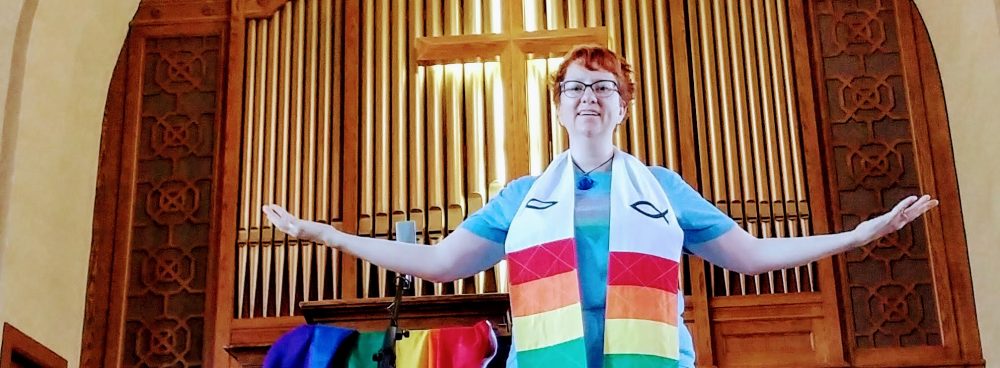You might find the reading from Mark 13:24-37 somewhat disturbing. Most of the Advent readings over the next few weeks come from Apocalyptic literature. The images in apocalyptic literature make us think of the end of the world. This reading begins by saying “the sun will be darkened, the moon will not give her light, the stars will be falling from the sky, and the powers that are in the heavens will be shaken.” It seems like a bleak outlook.
You might think these are odd readings to choose for Advent when we are looking forward to a birth. We think of Advent and Christmas as celebratory times and the scripture doesn’t feel very uplifting. As I read it, it felt more like a warning. Something is coming that will create an upheaval in the world. The scripture doesn’t indicate whether this upheaval is good or bad, just that it will occur.
Apocalyptic literature isn’t intended to predict the end of the world. It’s purpose in scripture is to describe the shift between what is and what might be when God is fully present in the world. We might think of this as the end of an era or the end of the current time. We might even say it is the end of the world as we know it.
Advent is, by nature, an apocalyptic time. There is the world as we know it and then Jesus’ birth disrupts everything. All of the characters in the Christmas story find their lives disrupted by Jesus’ coming among them. Zachariah and Elizabeth, an older couple without children, find themselves raising John who will prepare the way for God among us. Mary, a teenager, finds herself pregnant with the child of God. Joseph finds the woman he planned to marry already pregnant. The shepherds are startled by angels singing to them and leave their sheep to go find the baby. The magi see unusual signs in the sky and set off on an adventure. Each of these characters found their lives upheaved and changed forever.
Apocalyptic literature draws our attention to the moment when everything changes. We might feel like we are in our own apocalyptic time. Things, that a year ago were unimaginable, are now a reality. Who would have thought that we would need to wear masks whenever we leave our house? Who would have thought we would have restrictions on how many people could gather for Christmas dinner? Who would have thought that we wouldn’t gather in our church sanctuary for worship?
The world hasn’t ended but the landscape is different. How we live and interact with others is different. An apocalyptic moment creates an opportunity to be aware of God’s presence among us in ways we might not have noticed before. It is a moment where God becomes visible and we can discern more clearly our priorities and values. The scripture gives us advice for moments like this: “Watch, keep alert, and pray.”
On this first Sunday of Advent we celebrate hope. Hope recognizes the reality of the world in which we live but invites us to “Watch, keep alert, and pray.” When we watch, keep alert and pray it helps to put the upheaval in perspective and find God in the midst of the uncertainty. The characters in the Christmas story didn’t immediately say, “Thank-you God for turning my life upside down.” They started from fear, anxiety, uncertainty. It was only as they watched, waited and prayed that they discovered God in lives. As they discovered God at the centre of events which had originally seemed like disaster, these events became a gift.
I invite you, this Advent season, “to watch, keep alert, and pray.” The world is not ending but perhaps we are seeing the end of an era. What might God be birthing in our world through this time? How is God inviting us into this new world that is being created? Watch, keep alert and pray. Seek hope this season.





